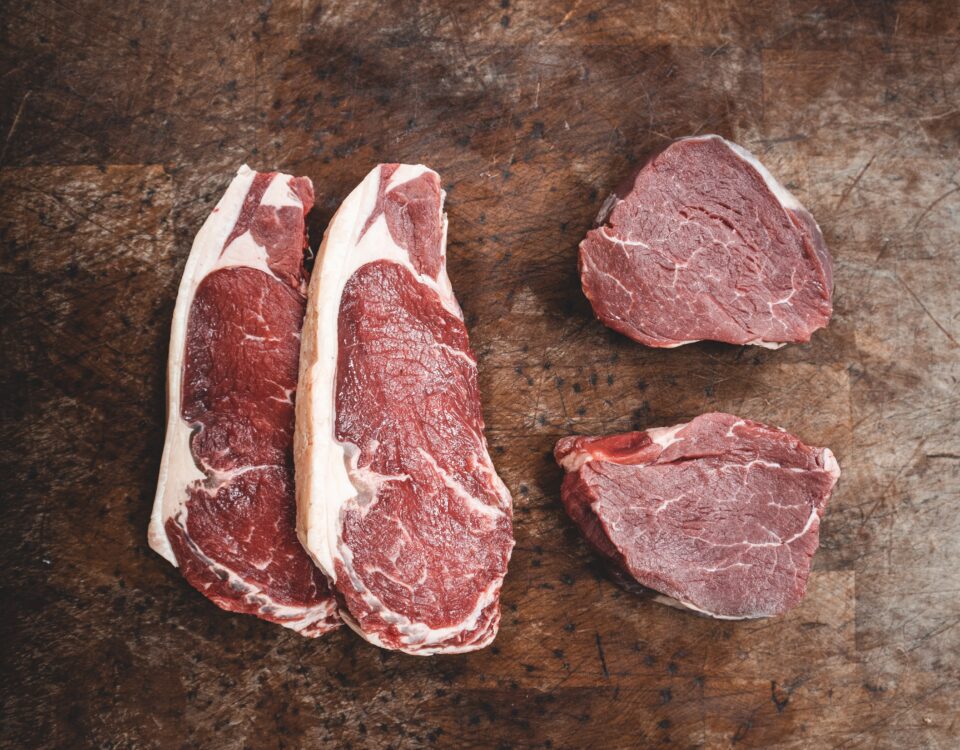


3 Benefits of Strategic Blogging for Farms & Food Businesses + 7 Topic Ideas
November 23, 2020


The Best Website Hosting Platforms for Farms and Specialty Food Brands
December 27, 2022The Best Ecommerce Platforms for Farms and Specialty Food Brands


Everyone’s doing ecommerce. Especially post-pandemic, customers expect to shop online. For farms and small food brands, online stores attract more customers and move more product. When you no longer have to be physically present to make a sale, you can sell while you sleep. But not all ecommerce is alike. In this article, we’ll be discussing ecommerce that is directly integrated with your website. This type of ecommerce is ideal for farmers with relatively consistent inventories, like livestock farmers.
This straightforward type of ecommerce is also ideal for value-added products like jam, cheese, charcuterie, honey, syrup, and herbal products.
In our experience, CSA farms and other vegetable growers with mildly complex member schedules do better with a standard website and a third-party customer management system like Farmigo or Local Line. If that’s you, check out this blog.
Ecommerce Platforms for Farms and Specialty Food Brands
Square
Many businesses that sell at a market or events use a Square reader to collect credit card payments from customers. Did you know that Square also offers a platform to build your website that may be included in your membership? Square also conveniently integrates with Quickbooks.
Square websites are relatively easy to create, and it can be convenient to have your transaction information and your website platform integrated. However, it can be a headache to figure out the logistics of offering multiple pick-up sites with Square, and their main dashboard is difficult to navigate.
Cost: $0-$79/month plus 2.9% + $0.30 per transaction made
Choose Square if:
- You’re already using a Square reader and don’t yet have a website
- You want to see your sales information and manage your website in the same place
- One or both of the above are true, and you're using Quickbooks
Skip it if:
- Your business has complicated delivery logistics
- You want something with powerful design tools
Grazecart:
Grazecart is our #1 pick for small farms that sell meat, because it’s the only e-commerce platform that lets you sell by variable weight (i.e. roasts that could be 2 lbs, 3lbs, or more) with built-in tools to accurately manage inventory. We like Grazecart so much that we gave it its own blog post—check that out here.
If you don’t sell variable by weight, you’ll have more design control and can get a more beautiful website with an e-commerce platform like Woocommerce or Squarespace.
Cost: $149 - $399/month
Choose it if:
- You need to sell by variable weight
- You want to offer local delivery and pick-up options
Skip it if:
- You want to build something really beautiful
- You don’t need the variable weight functionality
See it in action: Dutch Meadows, Millers Bio Farm, Plumb Rocky
Woocommerce:
The power of Woocommerce is its endless customization. You can make your store look any way you want, and there are endless plug-ins and add-ons available. For example, Woocommerce can create subscriptions, bundled products, and free gift coupons. For more mature and/or complex businesses, Woocommerce is extremely powerful.
However, Woocommerce is challenging for beginners because it starts as an empty box. That can be daunting if you’re working on your website alone and don’t have experience with web development.
Woocommerce is an add-on for Wordpress, so you’ll need a Wordpress website to use this option.
Cost: 2.9% + $0.30 for each transaction made with U.S.-issued credit or debit cards
Choose Woocommerce if:
- You have a complex business model that would benefit from lots of customization
- You want a powerful e-commerce tool with the flexibility of Wordpress
- You’re already using Wordpress
Skip it if:
- You need something plug-and-play
- You’re building by yourself and you don’t have experience with web development
See it in action: Dragonfly Hill Farm & Kitchen
Shopify:
Shopify is a popular e-commerce platform for brands of all kinds. It has some of the most advanced online retail tools because it’s used by large companies all over the world. Shopify can support a very large product catalog, so it’s a good option if you’re selling 50+ different items and plan to ship nationwide.
Other advantages: Shopify now has tools for local pickup and delivery options. It integrates well with Quickbooks. You can use custom apps for additional features, like logistics apps that make routing less time consuming.
Cost: $29-$299/month plus 2.9% + $0.30 per transaction made
Choose Shopify if:
- You have a large product catalog
- You plan to ship product nationwide
- You want lots of retail features
Skip it if:
- You need the ability to manage local deliveries
- You don’t need all that e-commerce functionality and would rather have something simple
See it in action: Stillman Meats, Katydid Hill
Squarespace:
Squarespace is known for its beautifully designed templates that make it simple to get a professional, polished look. Squarespace also has advanced marketing tools baked in, like the ability to manage email and digital ad campaigns, pop-ups, SEO, and more. It’s affordable and easy to set-up e-commerce. It’s an excellent choice for specialty food brands with product catalogs under 50 items.
It’s easiest to make a Squarespace site work if you already have professional photography. We think this platform has few drawbacks (and no, we are not being paid to say that).
Cost: $27-$49/month
Choose it if:
- You want advanced design tools combined with integrated marketing tools
- You want a simple and affordable ecommerce option that doesn’t look amateur
Skip it if:
- You need the most advanced tracking and analysis of online sales (while Squarespace is a robust e-commerce platform that rivals Shopify, it lacks some of Shopify’s sophistication with data)
See it in action: Middle Ground Farm
Don’t need e-commerce? Check out our recommendations for regular website platforms.

